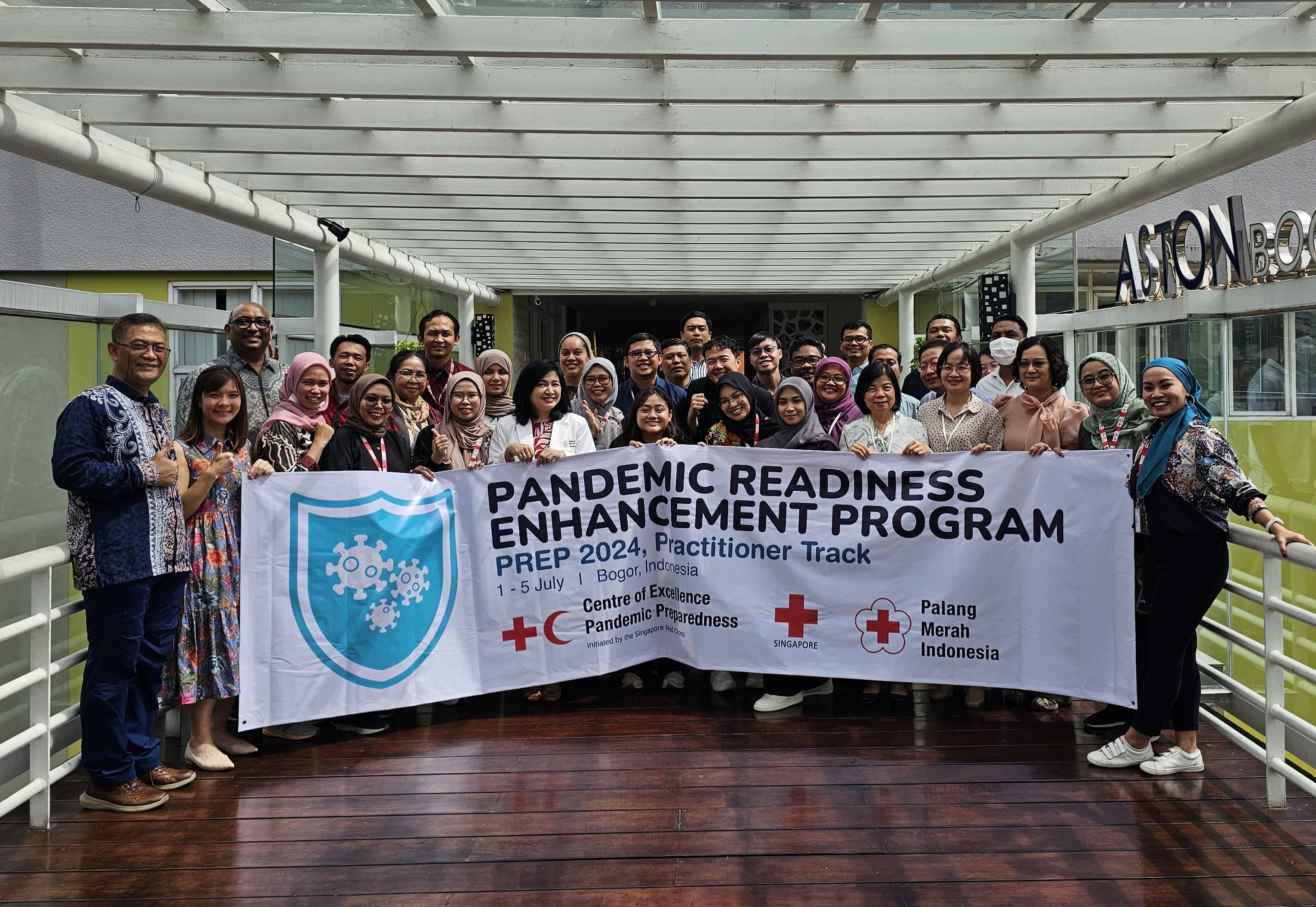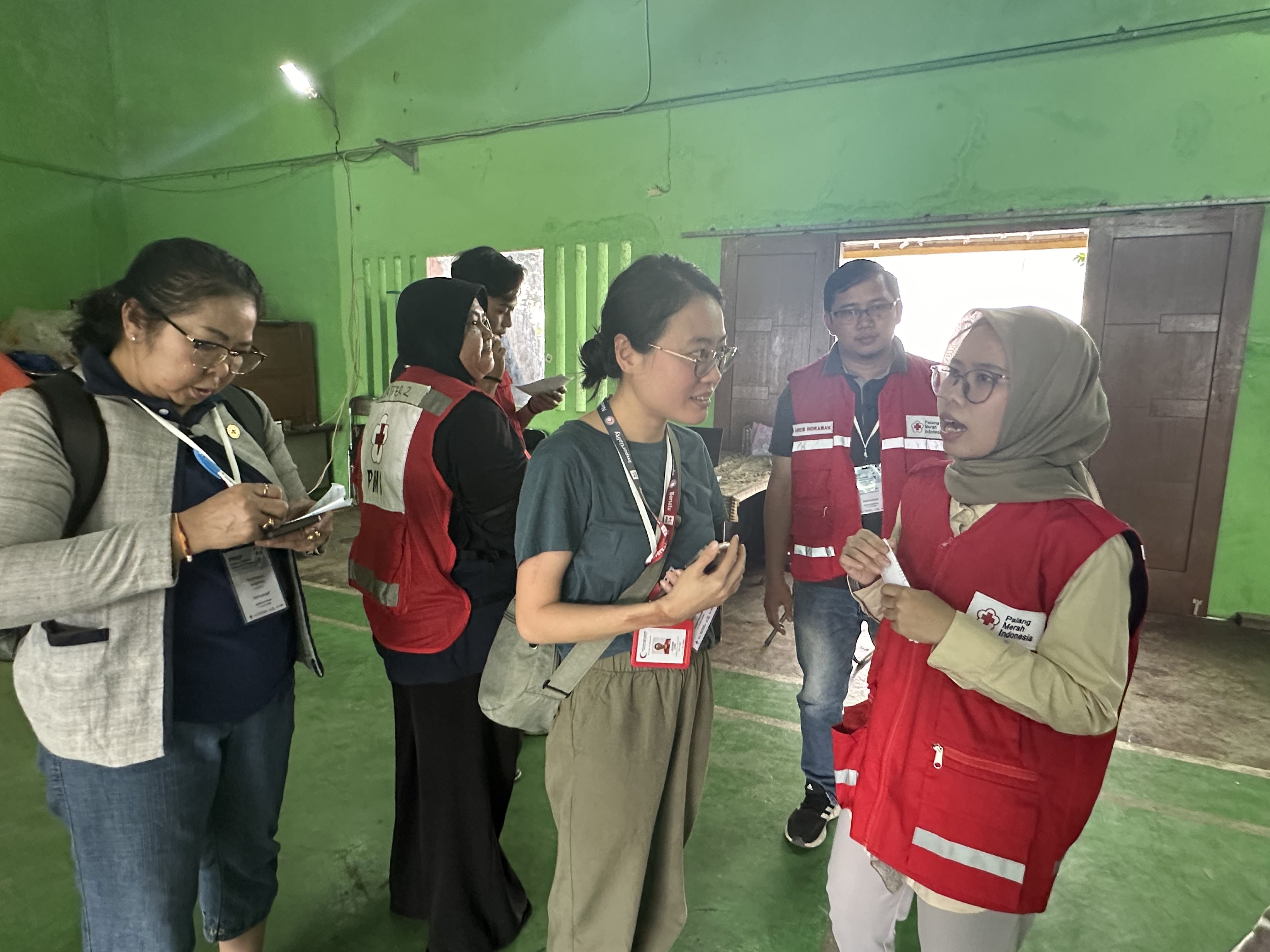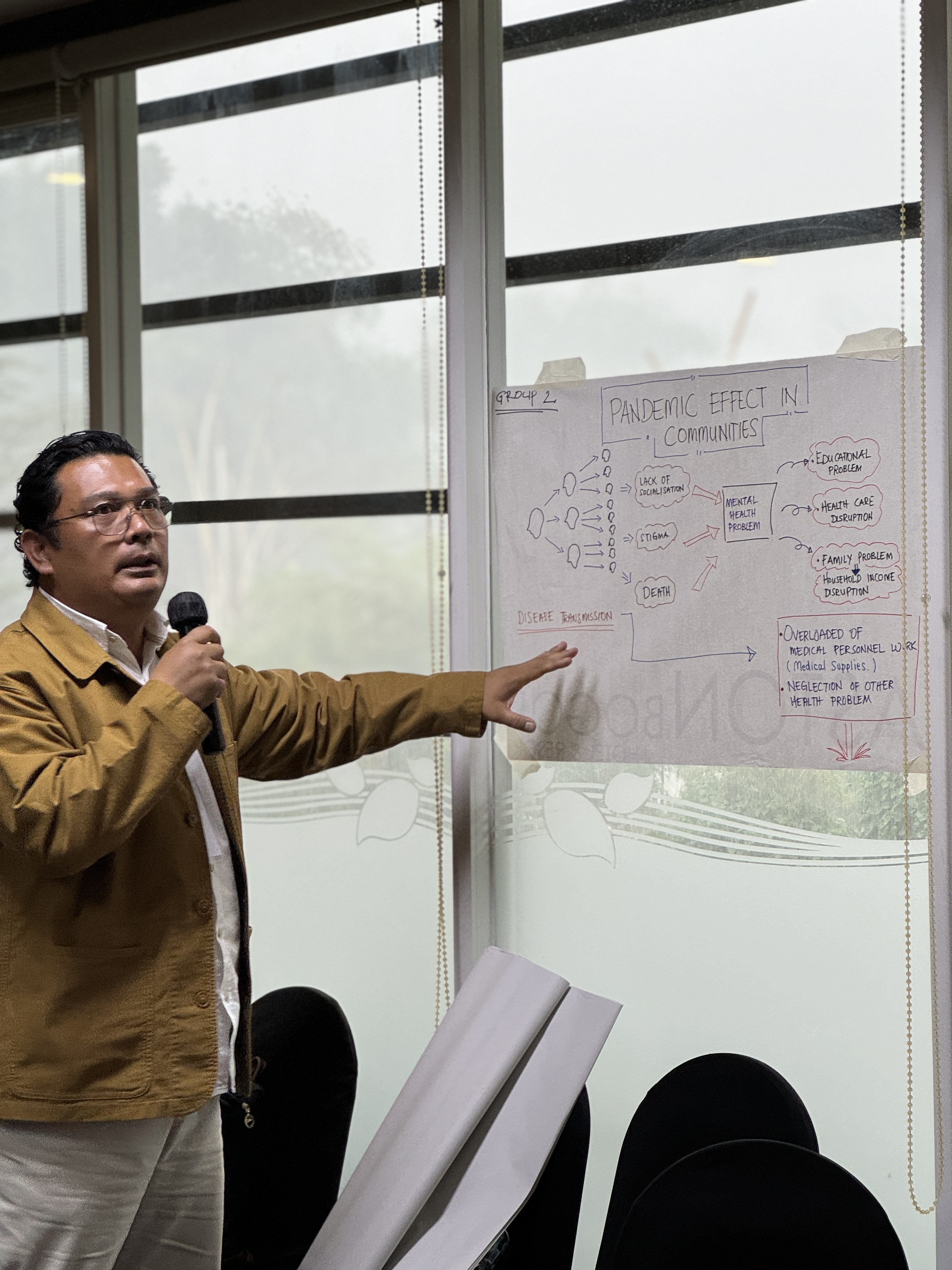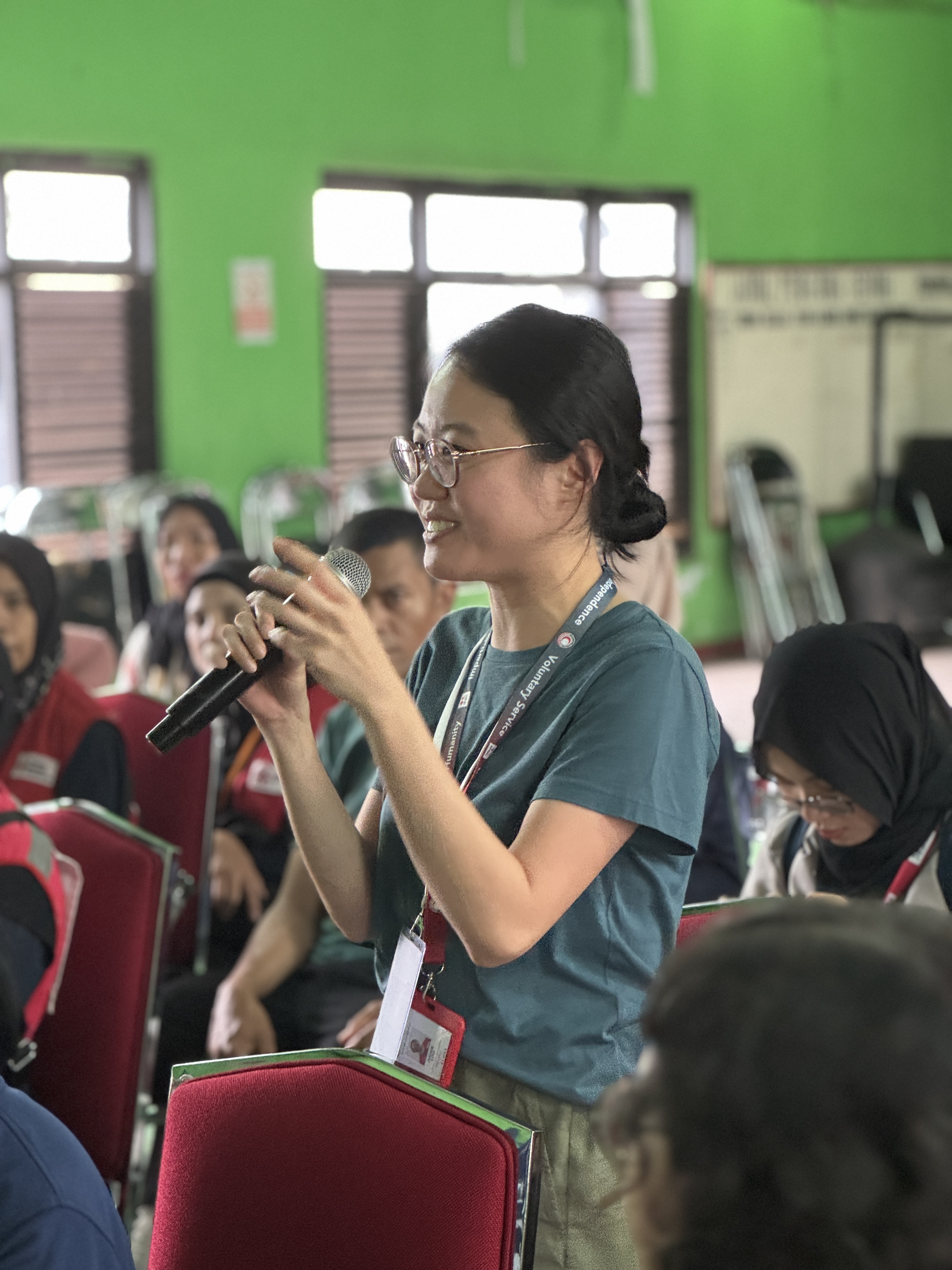
Singapore Red Cross (SRC) Centre of Excellence for Pandemic Preparedness and Palang Merah Indonesia (PMI) jointly organised the Pandemic Readiness Enhancement Programme, Practitioner Track (PREP 2024). Held in Bogor, Indonesia from 1 to 5 July, PREP 2024 is targeted at bolstering the knowledge and skills enabling practitioners to contribute to the resilience of the organisation and the communities they work with.
The team from the Singapore Red Cross and PMI conducted training sessions on various areas of pandemic preparedness for 17 participants from Southeast Asian National Societies. The participants garnered pragmatic perspectives, knowledge, and practical skills, in public health emergency response from the sessions. The programme concluded with a field visit to Tegal Gundil Village where they observed and learnt about the Community-Based Surveillance (CBS) system implemented there.
They learnt about the processes of establishing the CBS mechanism; from assessment to developing a CBS protocol, determining the types of data to collect, and ways to address misinformation and disinformation among communities related to health information, and ways to conduct a vaccination campaign.
"We gleaned some insights into ways the Red Cross and Red Crescent Societies address public health in their respective countries, and address the challenge of keeping volunteers motivated. We also learnt about PMI's readiness. We learnt to be mentally prepared for the unexpected situations that may arise in community work and the significance of speaking in the language of the community. We also benefitted from the networking opportunities. Brunei Darussalam Red Crescent Society's volunteers can help with data gathering for the Ministry of Health," said Mr Md Sukrin Sufian Md Suni, Humanitarian Division, Brunei Darussalam Red Crescent Society.
"Early detection of disease transmission can potentially prevent a large-scale outbreak. With the right mechanisms, communities can help the government conduct surveillance of outbreaks. This also empowers local communities and Red Cross and Red Crescent volunteers to respond to the outbreaks, amplifying the impact of disease control. National Societies (NS) can play a significant role in disease surveillance. Knowledge exchange among NS is a great way to facilitate new ideas," said Ms Loo Juosie, Project Coordination, Health and Vaccination Team, Malaysian Red Crescent Society.
She added that CBS is relevant in Malaysia.

"Malaysia faces several key diseases year long. The monsoon season also heightens the risks of transmission of some diseases. Some communities are not on the radar of Malaysian health authorities. For example, irregular migrants may remain out of sight of government authorities due to fears of detention and arrest. MRC has networks with underserved communities who may benefit from such a programme. Therefore, CBS can be conducted throughout the year for certain diseases, and integrated with MRC’s disaster response for diseases. This will arrest the spike in disease statistics during the monsoon season. This workshop provided us with ideas on CBS' implementation in the Malaysian context," said Ms Loo Juosie.
The programme enabled opportunities to learn from and network with other delegates from other regional National Societies.
"These networks can also help facilitate regional disease control interventions in the future," she said.
SRC appreciates the contribution of PMI, IFRC, and the participants, for ensuring the success of the PREP 2024.



